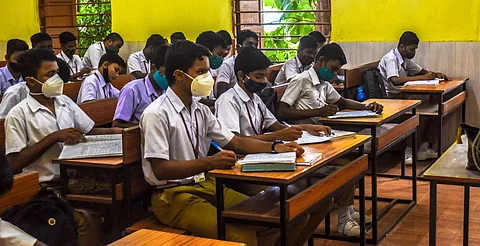

Around 400 government schools in Tamil Nadu will soon get a 'smart' facelift with Bal Utsav, an education-based NGO, announcing its foray into the State. The NGO is set to provide internet-powered classrooms in schools across South India, through its flagship programme — iShaala.
Bal Utsav partners with content providers and EdTech firms to make age-appropriate content available, and to enable blended learning for students. This content can be accessed either through children's personal devices, their parents/guardians' devices or even smart TVs and tabs provided to teachers.
iShaalas are model schools designed for government school children, that are innovative, inclusive, interactive and most importantly, internet-powered. As a start in the State, the programme will be implemented at the Government Model Higher Secondary School in Saidapet.
"This was earlier implemented in over 200 schools in Karnataka and the project is now being extended to Telangana and Tamil Nadu. The programme focuses on four key areas: school infrastructure (internet connectivity, smart TVs and EdTech content), WASH (water, sanitation and hygiene), teacher development (upskilling) and scholarships for students," explained Co-founder of Bal Utsav, Ramesh Balasundaram.
Within the next three years, he adds, the plan is to implement iShaala in at least 75 government schools within a 200-kilometre radius of Chennai.
"According to the recent Annual Status of Education Report (ASER), 70.3 per cent of children in India are enrolled in government schools in 2021. But, only 18 per cent of government schools in Tamil Nadu have internet facilities. There is an urgent need to make these institutions 'smart' and 'internet connected' to enable them to operate at their highest level of efficiency," said Binu Verma, Co-founder of the NGO.
It is important to have model schools to arrest the trend of ailing public schools, and revitalise them, she added.
Notably, the state government is actively promoting the setting up of smart classrooms and training of students and teachers to adapt to this new mode of learning. This initiative may further fuel digital learning and equip schools with Smart TVs pre-loaded educational content. It aims to empower teachers with tablets to conduct classes online, in case of another lockdown.
